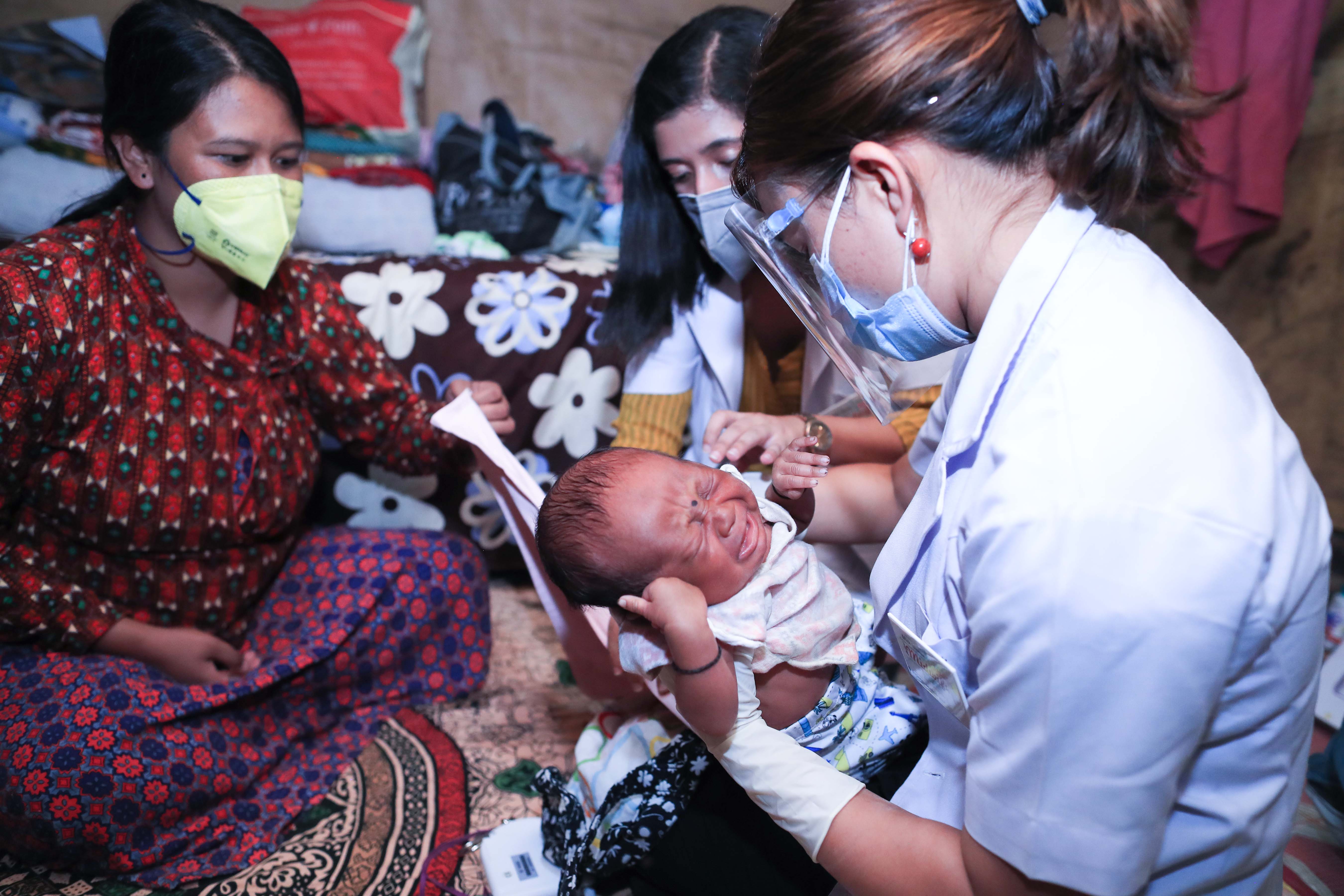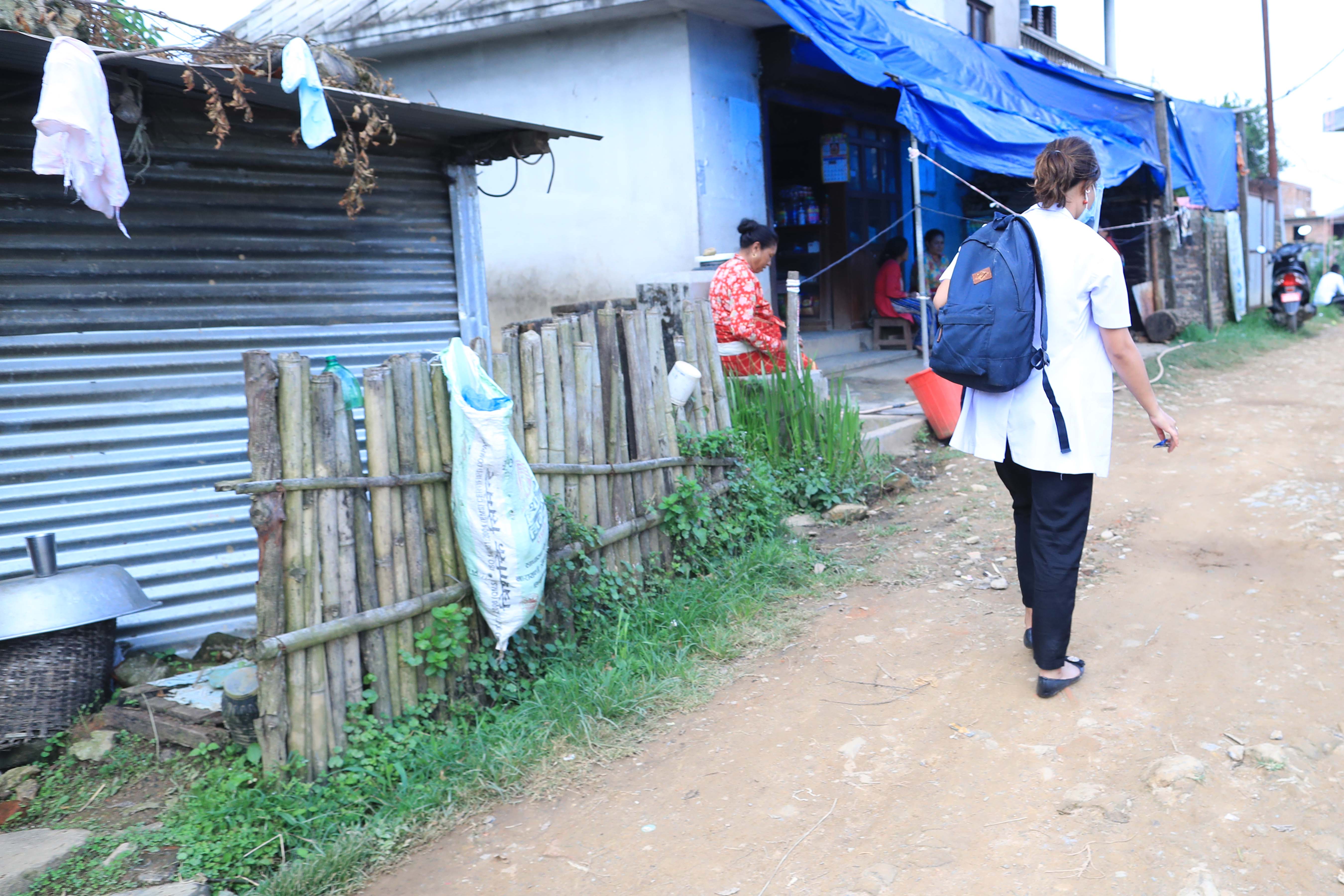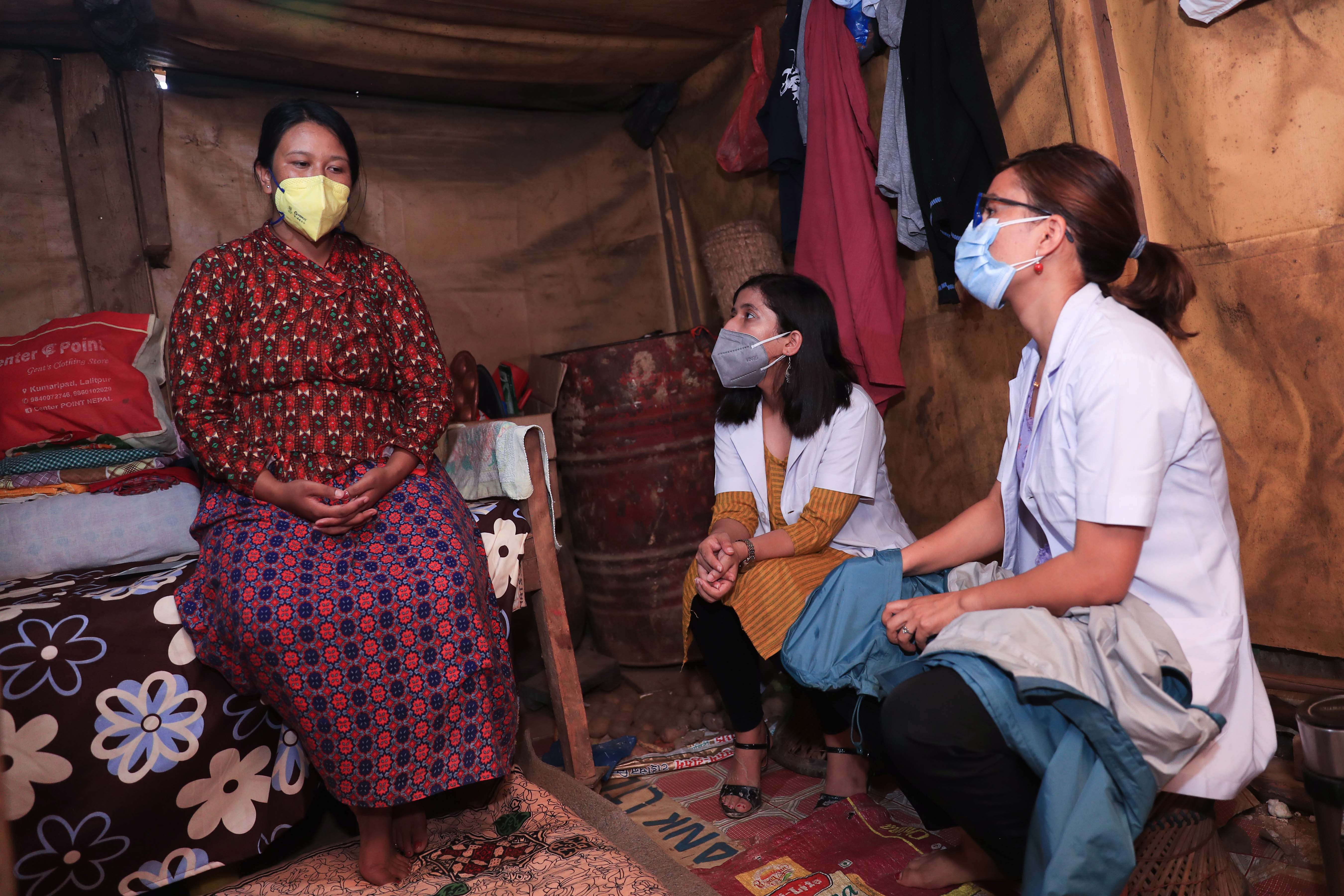Prasansha Budha Lama is one of the first batch of professional midwives to qualify in Nepal. She is one of 14 professional midwives in the whole country. When COVID-19 shut services down in March, she and her colleagues set up an emergency hotline to keep women and girls connected during their pandemic pregnancies.
“All the health facilities were closed down by the lockdown except emergency services,” Prasansha says. “There was no transport at the time. Pregnant women were so scared because they did not know where to go in an emergency or if they had any queries. They did not have any options at the time.”
Prasansha had just graduated as a midwife and, along with two of her friends who were also midwives, through the Young Midwives Committee, she started an online and telephone midwifery service for women who were anxious and who could not get help at facilities because of lockdown.
At the start of lockdown, she had started getting questions from several of her pregnant friends who were struggling with lockdown and the lack of services. “When this pandemic hit, some of my friends who were pregnant contacted me,” she recalls. “They said they couldn’t access health services because there was no transport and they were scared.”
At first, Prasansha and her friends shared their own phone numbers online so that women could call them for advice. Soon, though, they received support from Dr Laxmi Tamang, President of the Midwifery Society of Nepal (MIDSON), and from the society itself, and they turned the service they were offering into a national, toll-free hotline providing tele-health sessions. “We wanted to make the Government responsible for pregnant women,” she explains. “Pregnant women could not wait, so we developed the support system they needed.”

The hotline gave women a knowledgeable and helpful friend they could speak to about their concerns and all the questions that they had during pregnancy. “They were helped with transport to hospital and how to get the right care in the hospital by different agencies and individuals,” Prasansha says. “So far we have provided information and counselling to 2,900 women.”
The midwives provided advice, transport and referrals, but they also developed special remote services to help women cope with anxiety. “We enrolled women who were very anxious in sessions on gentle birth techniques,” she says. “We promoted several techniques that reduce women’s anxiety, like progressive muscle relaxation and self-hypnosis.” Prasansha and her colleagues taught the women techniques that physically and mentally prepared them for childbirth.
The initial support from MIDSON and then from UNFPA and other UN agencies helped Prasansha and her colleagues to expand their service. Other agencies, such as Amakomaya and Beyond Beijing, also supported the hotline. “UNFPA came along with us and actually motivated us to do more,” she says. UNFPA covers the cost of midwives involved in the hotline and also the mobile/telephone costs.

Through connecting to broader health networks, the service was promoted on national radio and social media and by health centres across the country. UNFPA has recently developed an animated video on the hotline service, which is being disseminated through television and social media.
As the lockdown continued, Prasansha was able to visit some of the women she had counselled over the phone. She went to visit a young pregnant woman who was from rural Nepal but living in a vulnerable situation in the city. “Whenever she called me she was always crying,” Prasansha says. “She could barely speak.”
Prasansha visited her and gave the young woman her first antenatal check up during the lockdown. With help from MIDSON and others, she gave the woman some food, money and clothes for her and her baby.
Prasansha says it was a case of domestic violence, which added an additional layer of urgency to the need for support. She was able to help the woman access transport to maternity hospital, where she delivered a healthy baby.
Prasansha says that she is glad that information on dealing with gender-based violence is included in midwifery training. She and her colleagues are equipped to provide service and counselling to survivors of gender-based violence. “One thing that I could give her was the psychosocial support she needed,” she says.
Prasansha offered to connect the young woman with lawyers to talk about her options, but she says that the survivor always needs to decide for herself. “The young woman did not want to report her husband,” she says. “If she had wanted to proceed with legal procedures, we could have made the referral.”
Prasansha says that the service was always about pregnancy, but that it was able to play an important part in the COVID-19 health network: “We taught the callers about how COVID-19 spreads and how they could protect themselves from it.
Prasansha and her friends realized that most of the pregnant women had limited knowledge about childbirth and pregnancy. The advice they were providing on a one-to-one basis could be scaled up to reach more women. “By simply educating and making women and their families more aware about danger signs, birth preparedness and complication readiness plans,” Prasansha says, “we can definitely prevent delays in seeking and reaching health facilities. This will help to reduce maternal and neonatal mortality and morbidity.”
With support, the midwives started a programme called Childbirth Education for Young People in Nepal in association with the MIDSON, Rural Community Health Care Nepal, the Nepal Society of Obstetricians and Gynaecologists, and Amakomaya. They enrolled young people under 25 years old and provided education about pregnancy, the physiology of pregnancy, and care before, during and after pregnancy.

“We empower them by talking about the danger signs that can happen during pregnancy and after childbirth,” Prasansha explains. “We also talk about respectful maternity care and gentle birth methods, and what special preparation they can do during pregnancy to avoid and manage complications.”
The programme successfully completed training the first batch of young people and there are plans to enrol a second batch.
Prasansha and her colleagues are an inspiring example of making use of professional expertise and personal initiative to help others in a pandemic. “Instead of blaming the Government or blaming other people or other organizations for not doing what they are supposed to do,” she says, ”we can start contributing to the country. We can contribute to women’s health from our own angle.”
Prasansha recalls that, in addition to the challenges of gender-based violence and teenage pregnancies, there were some heartbreaking times when they got calls from rural areas and their advice was not enough to save the woman.
She remembers when she took a call from a rural clinic where a pregnant woman was experiencing complications: “The staff contacted us and it was night-time. It was raining, and they were running out of medicine and supplies. The staff did their best and we supported them with advice on what they could do.” They referred the pregnant woman to a health facility where there were doctors, but she died on the way.
Prasansha says that those moments of grief have been hard but that the work has been rewarding. She has personally advised over 800 women since the pandemic began: “It makes me very happy,” she says, “especially when the women were happy with our services. I was able to help so many women, and we had organizations to support us, to motivate us and to inspire us to do more.”
About the response
Following the declaration of the COVID-19 pandemic by the World Health Organization on 11 March 2020 and a nationwide lockdown effective from 24 March 2020 by the Government of Nepal, UNFPA coordinated with the Family Welfare Division (FWD) in the Department of Health Services to activate the Reproductive Health Sub-cluster (RHSC) and implement the Minimum Initial Service Package for reproductive health to ensure the continuation of sexual and reproductive health (SRH) services. UNFPA co-leads the RHSC with the FWD and has a broad range of SRH national and international partners, including MIDSON, targeting various potential gaps in continuation of SRH services. To ensure coordination, UNFPA also facilitated activation of the RHSC at the provincial level. UNFPA contributed to the development of interim guidelines on reproductive, maternal, newborn and child health, and supported roll-out of the guidelines by providing orientation to SRH service providers in eight districts.
UNFPA carried out a rapid assessment of SRH services to gain a good understanding of the current status of health-care delivery, which provided evidence that informed a preparedness and response plan to address reproductive health needs and gaps. UNFPA provided personal protective equipment and supported the establishment of SRH helplines during the COVID-19 pandemic, including toll-free numbers offering counselling and information on safe motherhood, family planning and safe abortion services. Risk communication messages around COVID-19, including messages focusing on pregnancy, danger signs in newborns and breastfeeding, were also disseminated throughout the country.




